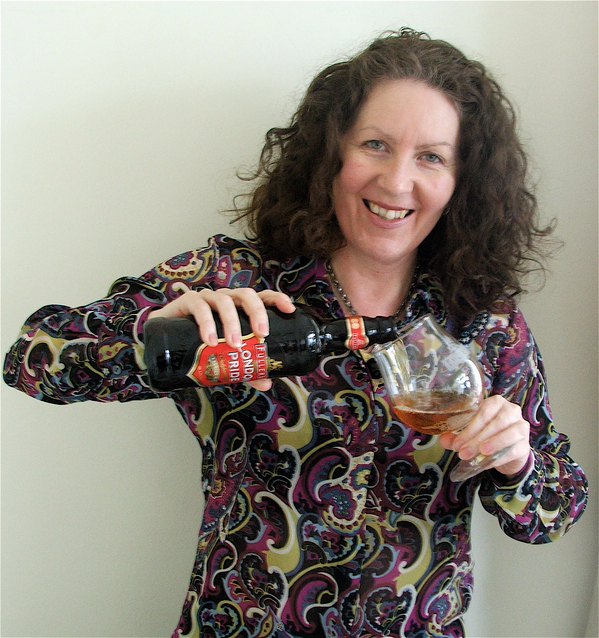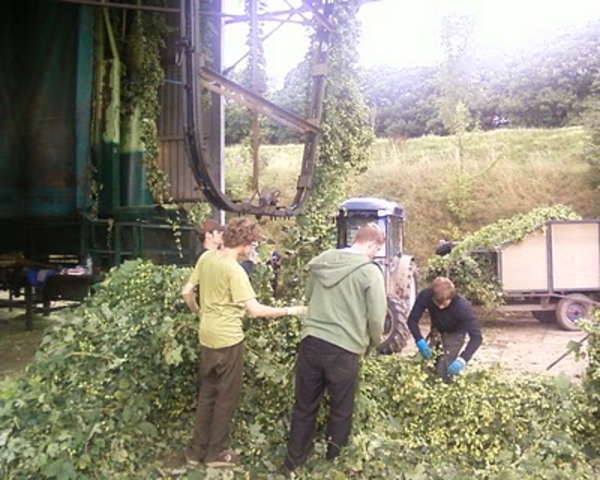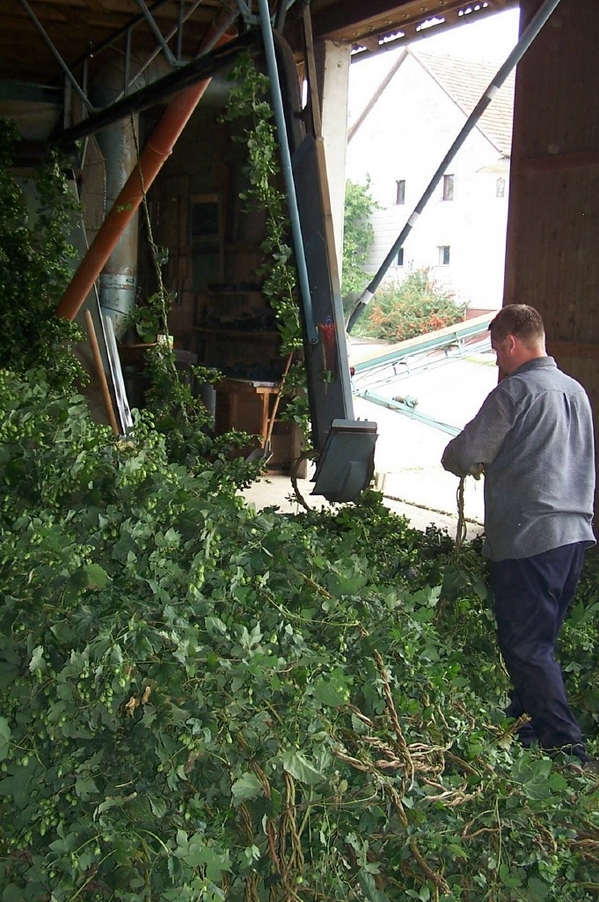Time to make British hops hip
Added: Monday, October 13th 2014

By Jane Peyton
Britain's historic influence on the international beer scene is immense. Not only did British ships and Britons through exploration, trade or conquest spread the love of beer to all hemispheres, but more styles of beer first brewed in Britain are now regularly brewed around the world than those of any other brewing nation - pale ale, India Pale Ale, brown ale, mild, porter, stout, Imperial Russian stout, and barley wine. How fortunate that Britain has a temperate maritime climate, lush soils, and rain to nurture hops and barley so the country's unique brewing heritage continues.
British malts are renowned as being the best in the world for brewing and distilling. And Blighty's hops. Oh hops - How do I love thee? Let me count the ways. Hops inspire poetic rhapsody in hop heads, of which I am one. I am especially enamoured of hops grown in Britain with the subtle yet complex variety of aromas and flavours they bestow in the beer. Blackcurrant, tangerine, spice, apricot, grapefruit, lychee, honey, marmalade and more. Just writing those words makes me thirsty but as I am working, I need a low ABV beer packed full of flavour to satisfy but not intoxicate. Hello session beers -- another aspect of brewing that Britain excels at. A good session beer where the hops and malts are in harmonious balance leaving the lining of the mouth intact leaves the drinker wanting more. And that is where British grown hops are supreme, permitting the delicious malt flavours to perform too which is why one of the current trends in US brewing is session beers brewed with British hops. Hurrah!
Hundreds of tons of British grown hops will cross the pond to America in the next few months to brew beers with discreet hop characteristics. Meanwhile thousands of tons of American grown hops are being shipped to Britain. It's not coals to Newcastle because US (and Australian and New Zealand) hops offer the brewer punchy aromas and flavours with an intensity that British hops do not. This is due to the soils and sunny conditions that New World hops are grown in and where irrigation is essential. It leads to higher levels of myrcene, the hop oil that ramps up aroma. Britain's distinctive terroir results in hops with lower levels of myrcene and hence delicate yet complex hop characteristics.
But British hops are not sexy the way that Citra or Galaxy are and in recent years the trend has been for highly hopped brews where New World hops are the star turn. A new generation of drinkers weaned on beers with turbo charged citrus and tropical fruits expect to be punched in the palate and may not consider a more restrained and balanced brew to be what they want in beer, and may even think it is boring, even bad. Yet it takes much more skill as a brewer to create a beer where all the ingredients are balanced.

Britain is responding with the world's most innovative hop breeding programme led by Dr Peter Darby of Wye Hops (a subsidiary of the British Hop Association) who is developing new sustainable breeds that will deliver those fruity aromas redolent of New World hops. Gorgeous new British varietals include Endeavour, Admiral, and Boadicea -- the world's first aphid resistant hop. Fuggles is a parent of many New World hybrids but is susceptible to a highly destructive disease called wilt. The good news is that a wilt resistant version of Fuggles developed at Wye Hops should be commercially available in the near future.
Peter Darby uses a musical analogy to describe what Old World and New World hops impart in beer. He is not inferring that any country grows better hops than another, just that they are different. He says "English flavour is like a chamber orchestra, the hops giving simultaneously the high notes and the bass notes. In comparison, a Czech beer is more like a full orchestra with much more breadth to the sound, and an American hop gives more of a dance band with more emphasis on volume and brass. The recent New Zealand hops (e.g. Nelson Sauvin) are like adding a voice to the instrumental music."
I am not anti-New World hops and I really enjoy their vibrant aromas and juicy flavours. However recently I was at a pub drinking thirds of a number of beers from small breweries. They all used New World hops and after only three thirds I could not tell one beer from another -- all hugely hoppy but the malts had no chance at all. If the definition of beer is an alcoholic drink made by fermenting cereal sugars then why brew a beer where the fundamental ingredient is obscured? British hops and malt are best friends and they have a symbiotic relationship of great respect for each other's contribution to the beer.
Who will join me in the "All We Are Saying Is Give Malt A Chance" campaign? This also means joining in the homage to British hops and evangelising about them -- but most importantly buying the beers brewed with them. How about we make British hops hip and persuade British brewers to choose locally grown varietals? That's if the American brewers have not bought them all!
*Jane Peyton is Britain's Beer Sommelier of the Year and author of several books including 'Beer o' Clock' (click here for details). Jane is the driving force behind Beer Day Britain, a national beer day for 15 June 2105 and she has also started a petition for the British government to serve British beer at official government functions. With 100,000 signatures the Commons may debate the subject. Please sign the petition by clicking this link.





